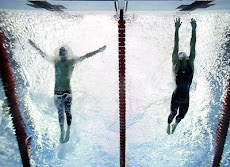
You may have noticed the poll we had running this last week or so. Is there science behind the results/preferences of when people prefer to train and exercise? Are certain times of the day better or worse than others? How much do psychological factors, rather than physical reasons, effect when people hit the gym?
There’s pros and cons both ways with regards to AM versus PM exercise and there are a lot of factors that influence specific exercise and its benefits (eg. nutrition, time). Everybody is effected in many ways by a “body clock” / circadian rhythm. This is an important mechanism for hormone release, activation of electrical activity in muscle, etc. This will have an effect on peoples’ exercise and training times. For example, many elderly folks prefer to exercise early in the morning, as they rise earlier, with an altered circadian rhythm and sleep patterns.
Mornings are generally better for exercise when trying to lose weight. One advantage of morning exercise is an elevated Resting Metabolic Rate (metabolism) through the day. This is accompanied by a phenomenon known as EPOC (Excess Post-exercise Oxygen Consumption) which can promote further fat loss over time. People that exercise in the morning also tend to have higher levels of adherence to exercise/training programs. Many ‘early birds’ also feel their mood is improved from the start of their day.
Some of us just aren’t “morning people” though and should rather find a time of day that we feel better about exercising. Mornings are also often accompanied by lower blood glucose, not so good for any weight/anaerobic training. Injuries are more common with morning training; body temperature is lower, flexibility is decreased and co-ordination with complex exercise techniques will be affected. Morning exercise has been shown to have a slightly higher risk of heart attack or stroke.
Two hormones that play a roll in exercise are Cortisol and Testosterone. Cortisol, a catabolic (breakdown) hormone, is highest within the body in the morning and decreases throughout the day. Testosterone, the main anabolic (build up) hormone, reaches its highest levels, relative to Cortisol, in the afternoon/evening.
Studies have shown that maximal strength reaches highest levels only after midday, with anaerobic and endurance ability peaking in the afternoon. This links with the higher anabolic hormone (Testosterone and Growth Hormone) state within the body to make afternoon/evening exercise slightly better for endurance, muscle mass and strength training. Body temperature rises steadily throughout the day, which makes sports performance generally better during late afternoon/evening. Exercise, especially at gyms, does tend to be more social in the afternoon and evenings too.
Exercising regularly in the PM does tend to be more difficult to maintain for some people as work commitments or distractions can interfere, although dealing with the day’s stress can be an added benefit of exercising at this time. Sleep is not generally affected by exercise, so evening exercise should be fine for most people.
Remember though, any exercise is better than no exercise at all.
Jed




















No comments:
Post a Comment